Somaiya Begum: Calls for more protection for victims of forced marriage after murder
- Published
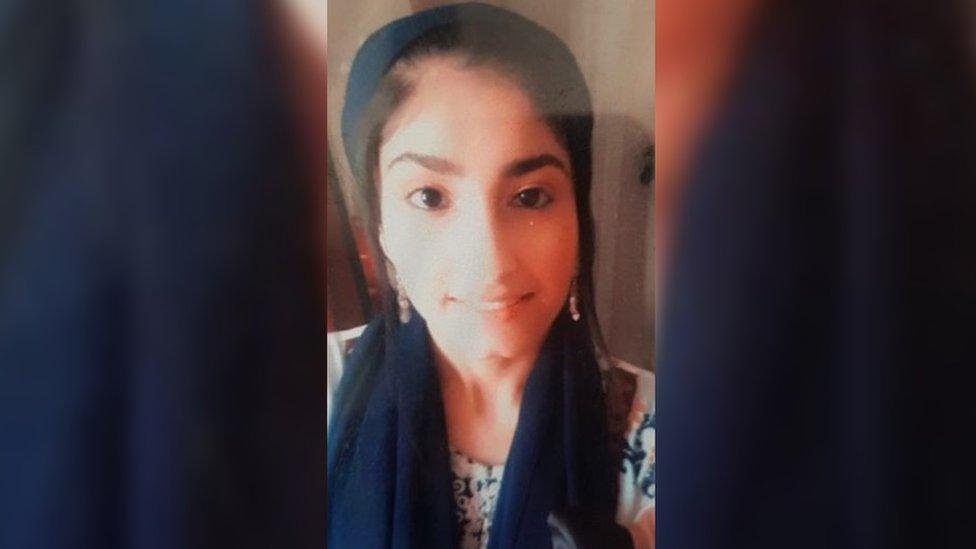
Somaiya Begum was found dead on wasteland in Bradford on 6 July
Mohammed Taroos Khan is beginning a life sentence for the brutal murder of his niece Somaiya Begum. The student rejected a marriage orchestrated by her father and then she helped secure a court order to stop it happening again. Campaigners say her death raises serious questions about the system which should have kept her safe from harm.
Somaiya Begum had a bright future ahead of her. The dedicated student was "thriving" at Leeds Beckett University, according to tutors, and had passed her first year of a biomedical science degree with flying colours.
But on 25 June 2022, she vanished from her home in Binnie Street, Bradford.
Eleven days later, the 20-year-old's body was found wrapped in a rug on wasteland in the city with a four-inch metal spike in her back.
Somaiya had been murdered by her uncle, Mohammed Taroos Khan, and dumped "like rubbish".
At the time, she had been living with her grandmother and another uncle under a court protection order.
That order had been issued after her father, Mohammed Yaseen Khan, had tried to force her "by threat of violence" to marry a cousin in Pakistan when she was 16, the jury at her uncle's trial heard.
Taroos Khan's trial at Bradford Crown Court, where he was found guilty on Tuesday, exposed what prosecutors described as "fault lines" in Somaiya's family.
'Chop her up'
Somaiya, whose father was said to have been "incandescent with rage" when she refused the marriage and reported him to West Yorkshire Police, should have been protected by the order from family members who sought to do her harm.
The court also heard Taroos Khan, who was given a 25-year minimum jail term, had a violent past, having previously been convicted of punching his own daughter, holding a knife to her throat and threatening to "chop her up".
"It is incredibly tragic, and it's a murder that should have been avoided," said Aneeta Prem, founder of Freedom, a charity which supports victims of so-called honour-based violence.
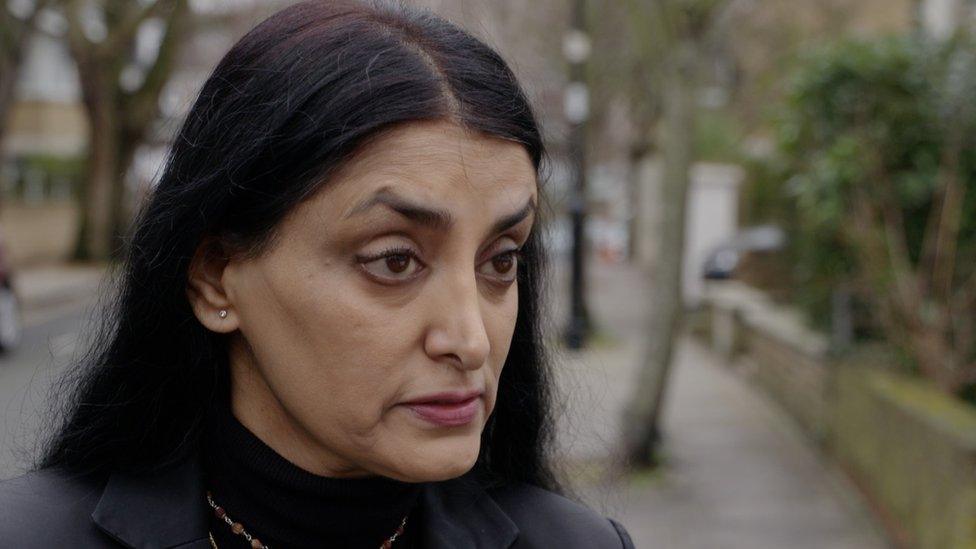
Aneeta Prem says victims need more to be done to keep them safe
Ms Prem told the BBC Somaiya's death raised serious questions about the support given to people - mostly young women - whose families attempt to force them into marriage.
"The authorities knew that she was in danger because there was a forced marriage protection order - there to do just that, protect her.
"It failed, and there are so many lessons to be learned," she said.
In 2021, family courts in England and Wales made 324 forced marriage protection orders (FMPOs), a type of injunction which imposes conditions on perpetrators, external such as forbidding them to contact victims or make marriage arrangements.
Since they were introduced in 2007 the number of orders, which can lead to prison sentences of up to five years if breached, have steadily risen from 101 in 2009, peaking at 596 in 2019.
According to the data, in 2021, the last full year for which figures are available, of the 203 applications made, 161 were for someone under the age of 17.
But Natasha Rattu, executive director of honour-based abuse helpline Karma Nirvana, said rather than protect individuals, the orders could "increase the risk" for victims if they were "not properly issued and monitored".
'Tremendous courage'
She said aspects of Somaiya's case were "sadly not unusual".
Karma Nirvana, based in Leeds, was contacted for advice 7,256 times in 2022, including 1,012 times from West Yorkshire.
More than half of enquiries (58%) related to forced marriage, which is a criminal offence in the UK punishable by up to seven years in prison.
Ms Rattu said: "Victims often have multiple perpetrators, they are living within a community which makes it more difficult for them to speak out, where shame and stigma are real issues.
"It takes tremendous courage to speak up when you're living within a dynamic like that, so it's really important that agencies get it right."
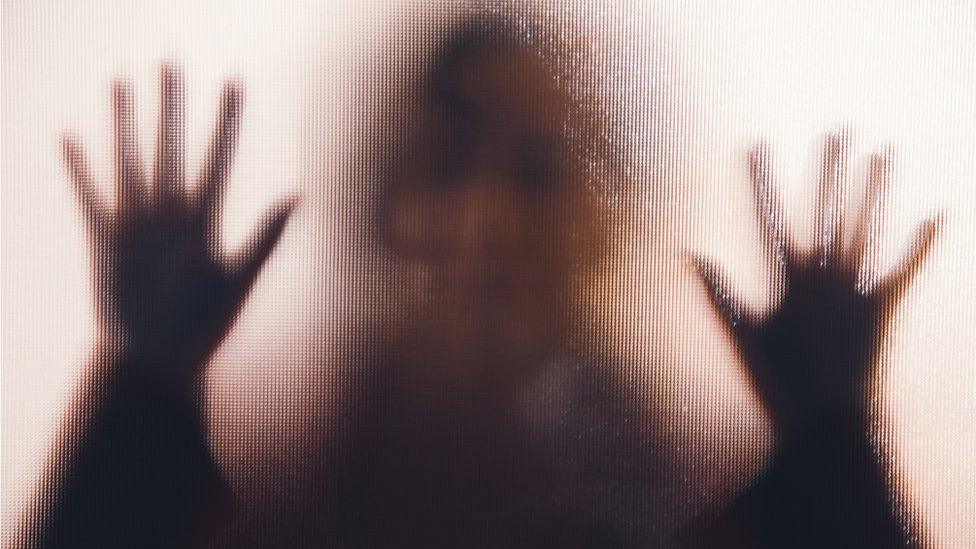
Other women may be trapped in the same situation as Somaiya Begum found herself in, Ms Prem said
In Somaiya's case, the forced marriage prevention order "wasn't worth the paper it was written on," according to Prof Aisha K Gill, a criminologist who specialises in research on violence against women.
It did nothing to stop Taroos Khan tracking down his niece to the home she shared with Khan's own mother and brother - and killing her.
Somaiya's body was so badly decomposed when it was found that a pathologist told the court he could not say how she had died.
Prof Gill, of the University of Bristol's Gender and Violence Centre, said there were "questions that need to be asked of the police" about risk assessments it carried out "given the history of violence and abuse by family members".
She added: "We know from research conducted on FMPOs that when these kinds of orders are served on perpetrators there is a heightened risk of retaliatory violence for 'getting the police involved'.
"What safeguards were put in place especially when victims of these crimes are still living in the family home?"
'Horrendous tragedy'
Ms Prem said victims of honour-based abuse were "at risk for their entire life, so it's really important that protection is put in place".
She added: "It's no good just having a standalone order, there has to be an awful lot more that needs to be done and should have been done in this case.
"In cases like this, you're looking at a change of identity, a change of location. You're looking at ensuring that there's additional safety measures in place.
She called for an independent inquiry to establish if lessons could be learned from Begum's death.
"Every single person involved in this case, all the authorities, need to look at what part they played," she said.
Ms Prem said: "There's going to be a number of young women in Somaiya's situation right now that are at risk of this happening to them.
"We don't want to be sitting here again talking about another horrendous tragedy, and of a life that didn't need to be lost."
When asked by the BBC, both West Yorkshire Police and the Home Office said they were unable to comment at present.

Follow BBC Yorkshire on Facebook, external, Twitter, external and Instagram, external. Send your story ideas to yorkslincs.news@bbc.co.uk, external.
Related topics
- Published15 March 2023
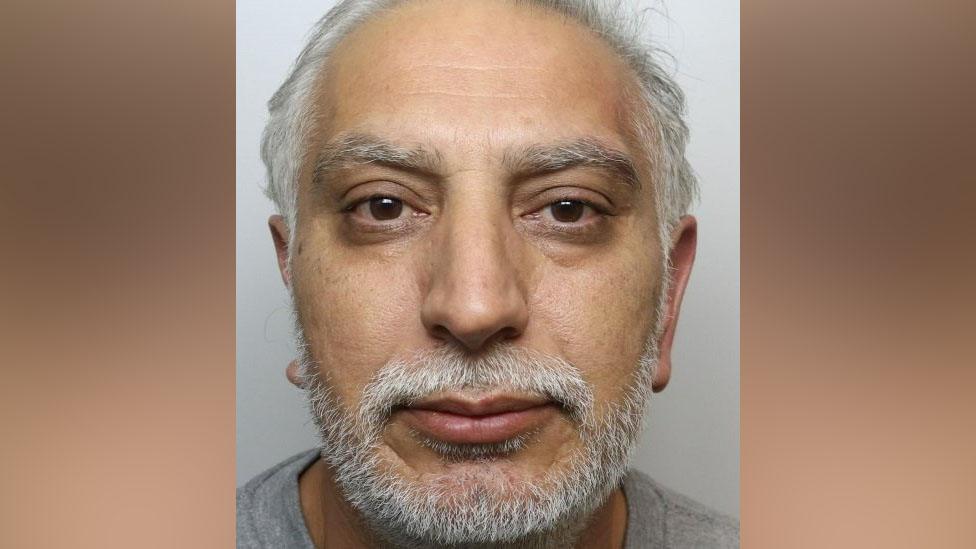
- Published8 March 2023
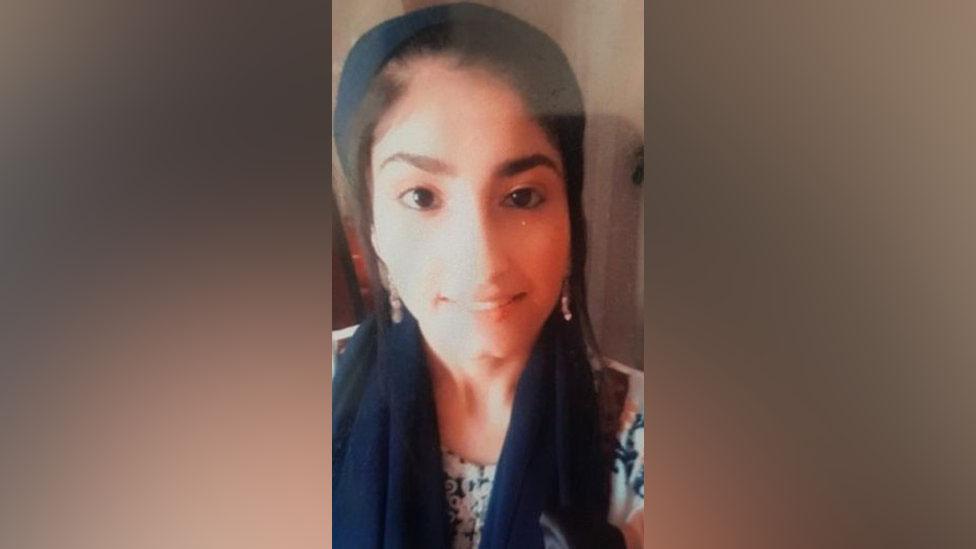
- Published3 March 2023

- Published1 March 2023
